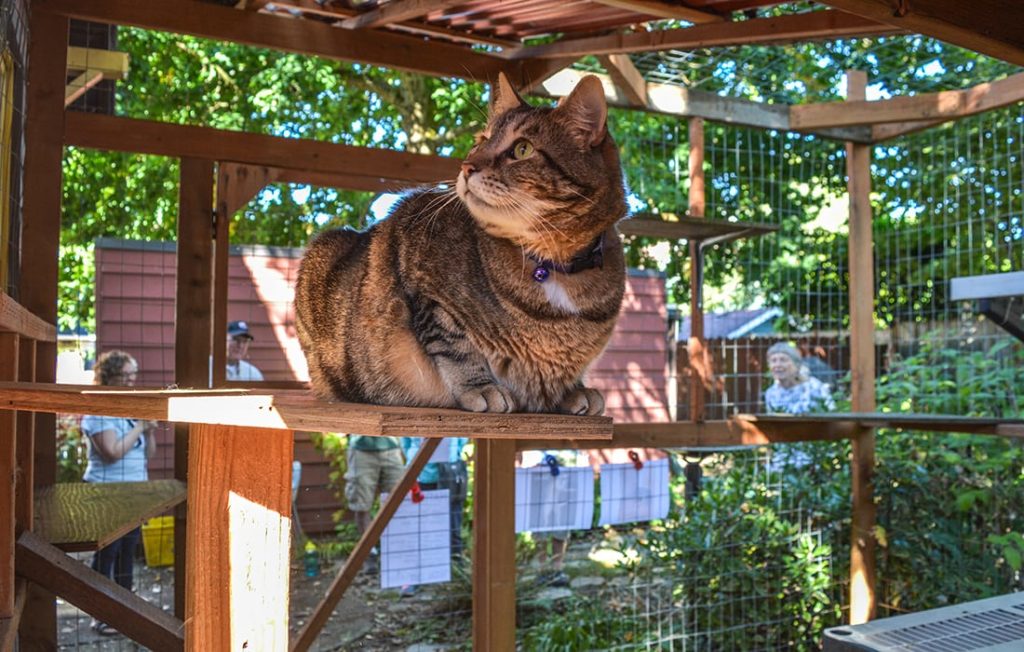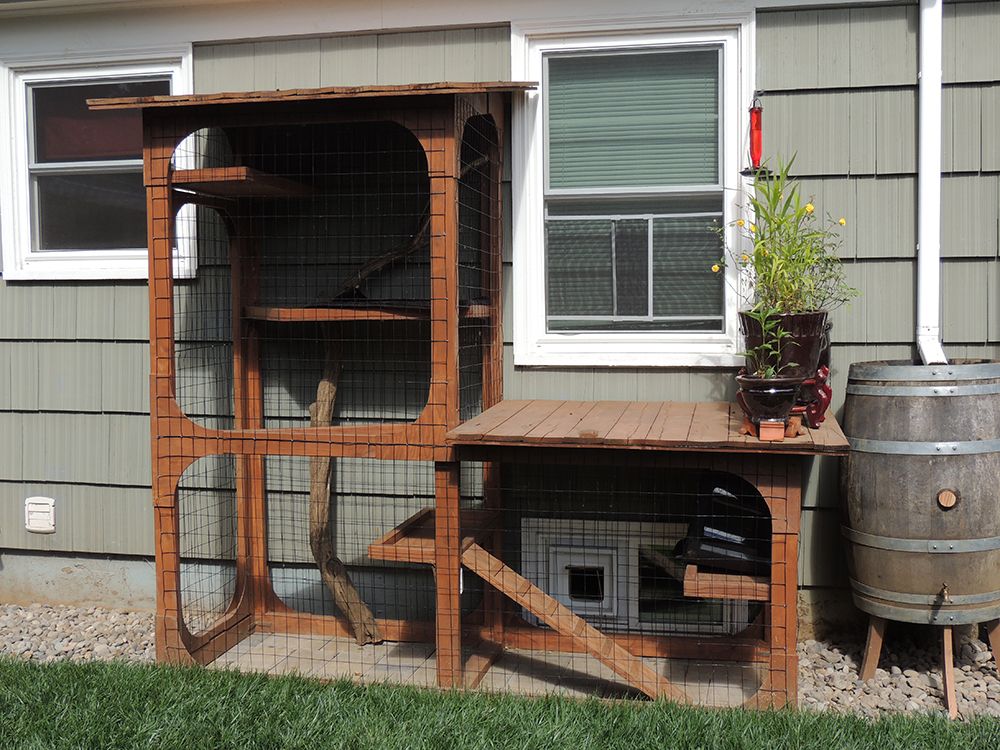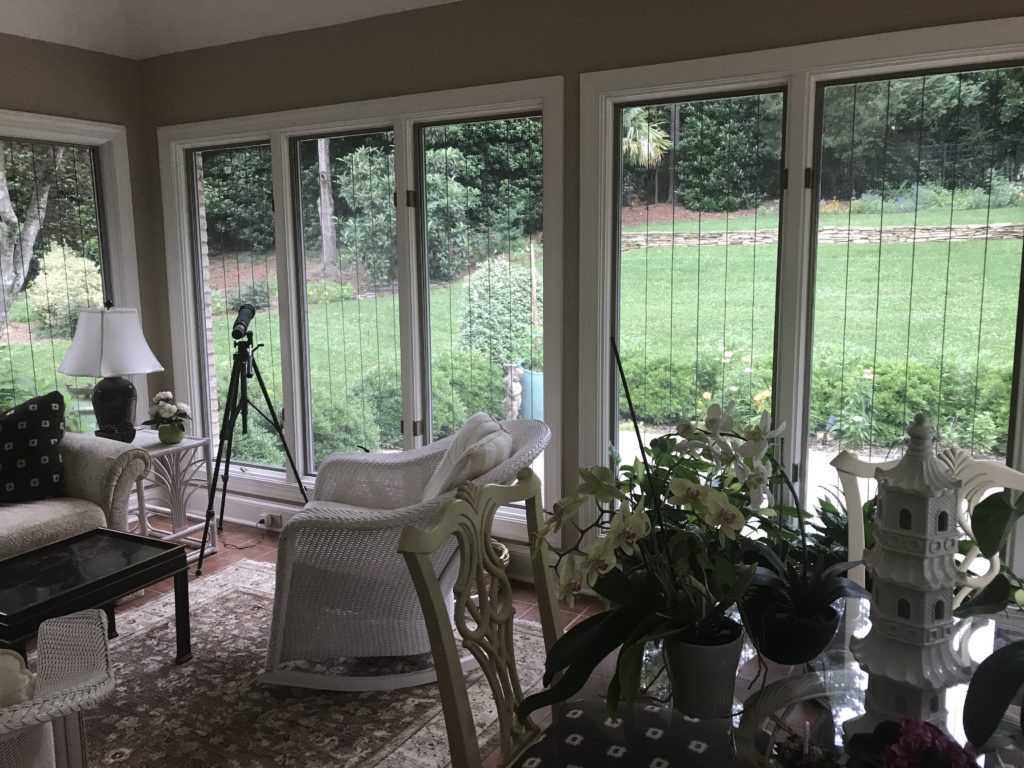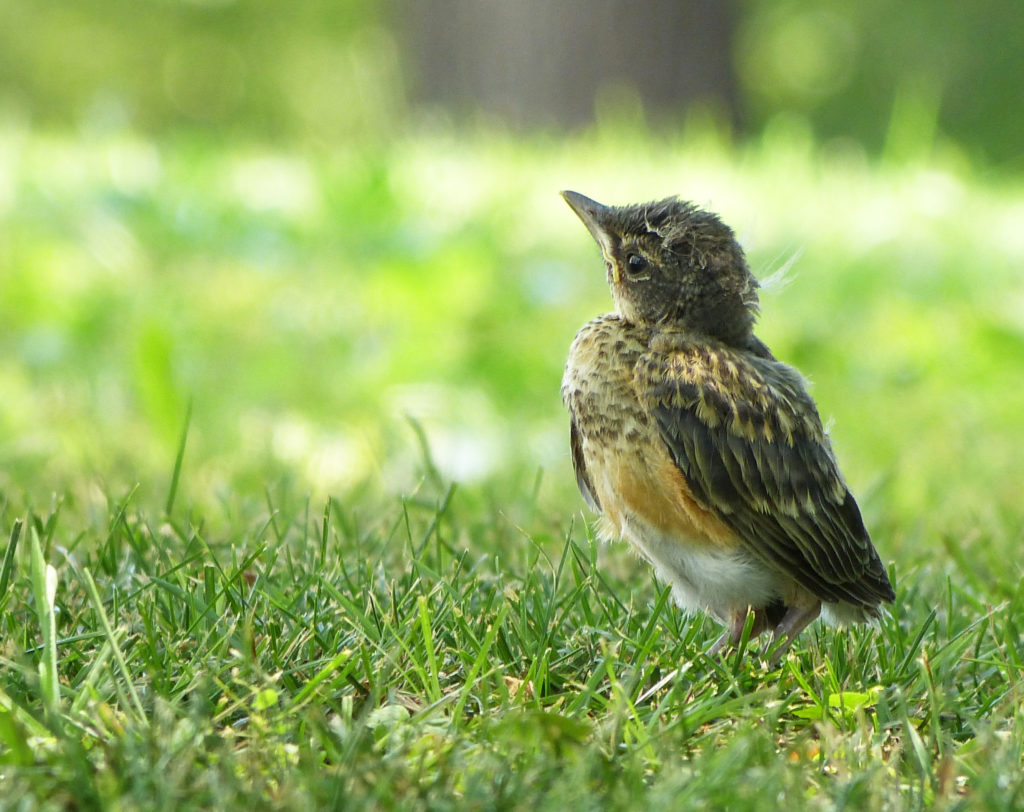According to a 2019 research published in the journal Science, wild bird populations in the continental U.S. and Canada have declined by almost 30% since 1970. “These bird losses are a strong signal that our human-altered landscapes are losing their ability to support birdlife,” said Cornell Lab of Ornithology conservation scientist Ken Rosenberg who was part of this research.
There are ways we can help birds, and many of you are already doing it by creating wildlife habitats in your outdoor areas. However, even before we create habitats, we have to talk about the two leading causes of bird deaths in the United States: free-roaming cats (over 2.4 billion birds are killed every year) and window collisions (over 1 billion birds die after hitting windows every year).
The Backyard Habitat encourages folks to keep cats from roaming unsupervised outdoors and implement actions to reduce bird-window collisions.
Don’t get us wrong – we love and own cats ourselves. Our program doesn’t stop cat owners from reaching any certification level. All we ask is that the more birds you attract to your outdoor space, the more control you have over your cats’ unsupervised outdoor adventures.
Building a catio (an outdoor cat enclosure) is a great way to keep both the local wildlife and your cats safe. Cats Safe At Home is an awesome resource for catio inspiration and strategies for transitioning cats to indoors only. For people with free-roaming cats, try to keep your cat indoors during peak hours of bird activity (morning and evening), particularly during breeding and migration seasons. Alternatively, let them out only while you’re actively supervising them.
After cats, windows strikes are the second leading cause of bird deaths. The hazard exists when there is no reflection on the glass, which birds think they can fly through, or when there is reflection, which birds see as a continuation of their habitat or rival birds invading their territory. Either way, the illusions are fatal for birds more often than not. Luckily, there are easy solutions to reduce the likelihood of window strikes – Make the glass visible and reduce the reflection.
Portland Audubon has an informative article that offers some solutions here.
Warming weather also means baby birds. Do you know what to do if you find one? In most cases, it’s best not to disturb them. Before taking any baby bird into your care, please call Audubon’s Wildlife Care Center. Here’s a guide from Portland Audubon to help you determine if the little one you found needs help.



